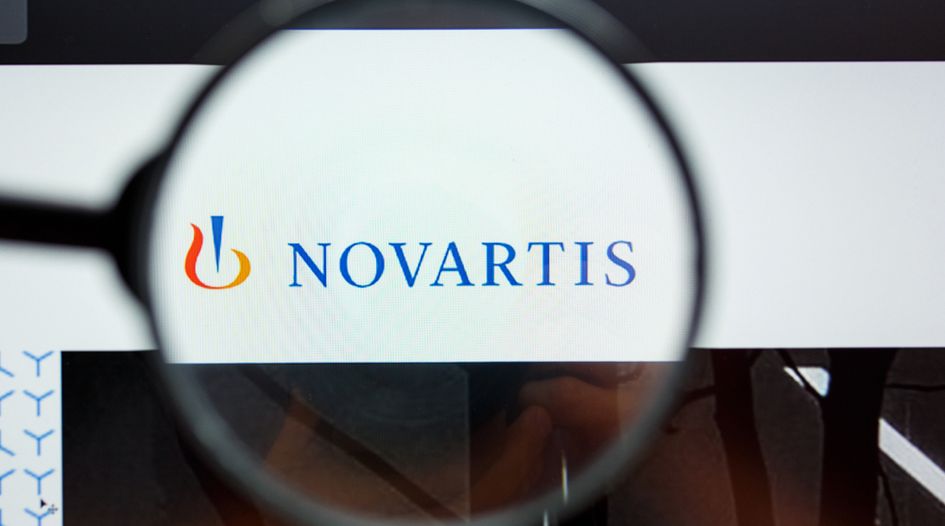Successful Novartis appeal provides critical clarification on India’s pre-grant opposition process

Indian patent law provides several ways to challenge a patent application. One method is pre-grant opposition, which can be filed by any party after an application is published, but before it proceeds to grant. In Novartis v Natco Pharma (9 January 2024, LPA 50/2023), a Delhi High Court division bench clarified a crucial difference between the facilitation and examination of patent applications, especially when they are challenged through pre-grant oppositions.
Case background
Natco Pharma and other pre-grant opponents objected to the Indian Patent Office (IPO)’s examination and ultimate grant of a Novartis patent application, asserting that pre-grant opponents have the right to participate and be heard in the examination process after the IPO accepts their opposition. Thus, the opponents should have been made parties to the process of amendments to the claims, which took place between Novartis and the IPO. They contended that while the pre-grant opposition hearings concluded on 3 November 2022, the IPO later directed Novartis to carry out amendments without any notice to the opponents.
At the first stage of appeal, a Delhi High Court judge agreed with the opponents and held that pre-grant opponents have the right to be heard when it comes to amending the application, because the examination and pre-grant opposition processes merge once the IPO accepts the opposition. However, on Novartis’s appeal to the division bench, the court disagreed with the judge and ruled that patent examination and pre-grant opposition proceedings are independent and separate processes. This means that pre-grant opponents are limited when it comes to representation up to and including the pre-grant hearing. After that, the examination process is between the applicant and the IPO.
Court decision
To reach this decision, the division bench delved into the Patents Act (current and previous editions), the Patent Rules, the legislative intent and the handling of oppositions by other jurisdictions. After its exhaustive analysis, the bench highlighted the following points.
- The Patents Act and Rules envision a separation between the examination and opposition processes. The examination of a patent application lies exclusively and independently with the IPO.
- An opponent’s right to a hearing pertains specifically to the representation stage and does not entitle it to intervene in the broader examination process.
- Pre-grant opposition proceedings were added as an amendment to the Patents Act to aid the examination process. The opinions presented in such an opposition enabled the IPO to gather insights that aid a comprehensive examination of the application and an informed decision – this is supported by prior judgments.
- The opposition process cannot be the sole determiner of whether a patent application should be granted. The rejection of an opposition does not mean that the patent will be granted, or vice versa. Therefore, the examiner is statutorily bound to independently evaluate the application, helped only by the points made in the pre-grant opposition.
- According to the Patent Rules, a hearing can only be triggered once the IPO accepts the opposition. However, this hearing cannot extend to issues that the IPO may need to address during the examination process, which “serves a wider and [more] significant objective”.
- Amendments to the claims based on a directive from the IPO are distinct from voluntary amendments that the applicant may choose to introduce as a result of the hearing and are, therefore, part of the broader examination process.
- Even from a natural justice principles perspective, a pre-grant opposition is neither adversarial nor contentious. The opponent cannot have the right to a hearing during the examination process because the Patents Act does not outline such a right.
- The principles of natural justice must be balanced with the patentee or applicant’s right to avoid inordinate delays or derailment by serial objections and hearings.
- The rights of interested parties are already sufficiently safeguarded under post-grant opposition and revocation proceedings, where opponents are given the right to a hearing compliant with the principles of natural justice.
Key takeaways
The Novartis decision acknowledges that the pre-grant process can be used (and abused) “so as to delay and derail the legislative objective of expeditious consideration”. Through detailed analysis, the court has made a clear distinction between the examination and opposition procedures, finalising a process that should aid a more streamlined and efficient handling of pre-grant oppositions while safeguarding the interests of both sides. This highlights how the judiciary is leading the way in bringing India’s IP regime in line with that of other jurisdictions.
IAM recommends
Delhi High Court defines enhanced therapeutic efficacy in setting aside Indian Patent Office refusal order
The Latest View on India’s Life Sciences IP Ecosystem
Saturday Opinion: Rumours India’s leading IP judge is moving on trigger power vacuum worries
This is an Insight article, written by a selected partner as part of IAM's co-published content. Read more on Insight
Copyright © Law Business ResearchCompany Number: 03281866 VAT: GB 160 7529 10

